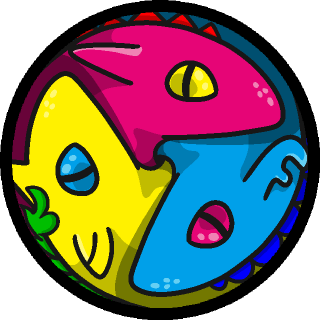Cracked-Shell Turtle
It appears this article is a stub! Alert the author if you'd like to see it expanded.
This article is a work in progress! Expect more content to be added.
This article was created for my Species-A-Day project for 2024! Read more here!
The cracked-shell turtle is a turtle species native to the whirlpool reefs. It is a fairly small turtle, and its primary distinguishing feature is its shell, which appears from afar as a cracked and dead clump of coral.
Cracked-shell turtles are often kept as pets by the coralite kuuyikar, who have a close connection with nature and anjoy the companionship of these animals. They can be very affectionate creatures, though are easy to lose, as they can blend in with the coral walls where the kuuyikar live.
Cracked-shell turtles are often kept as pets by the coralite kuuyikar, who have a close connection with nature and anjoy the companionship of these animals. They can be very affectionate creatures, though are easy to lose, as they can blend in with the coral walls where the kuuyikar live.
Geographic Distribution






I love them. I would panic if one was my pet and camouflaged itself in the corals. XD
Explore Etrea
they're sometimes unintentional troublemakers! xD